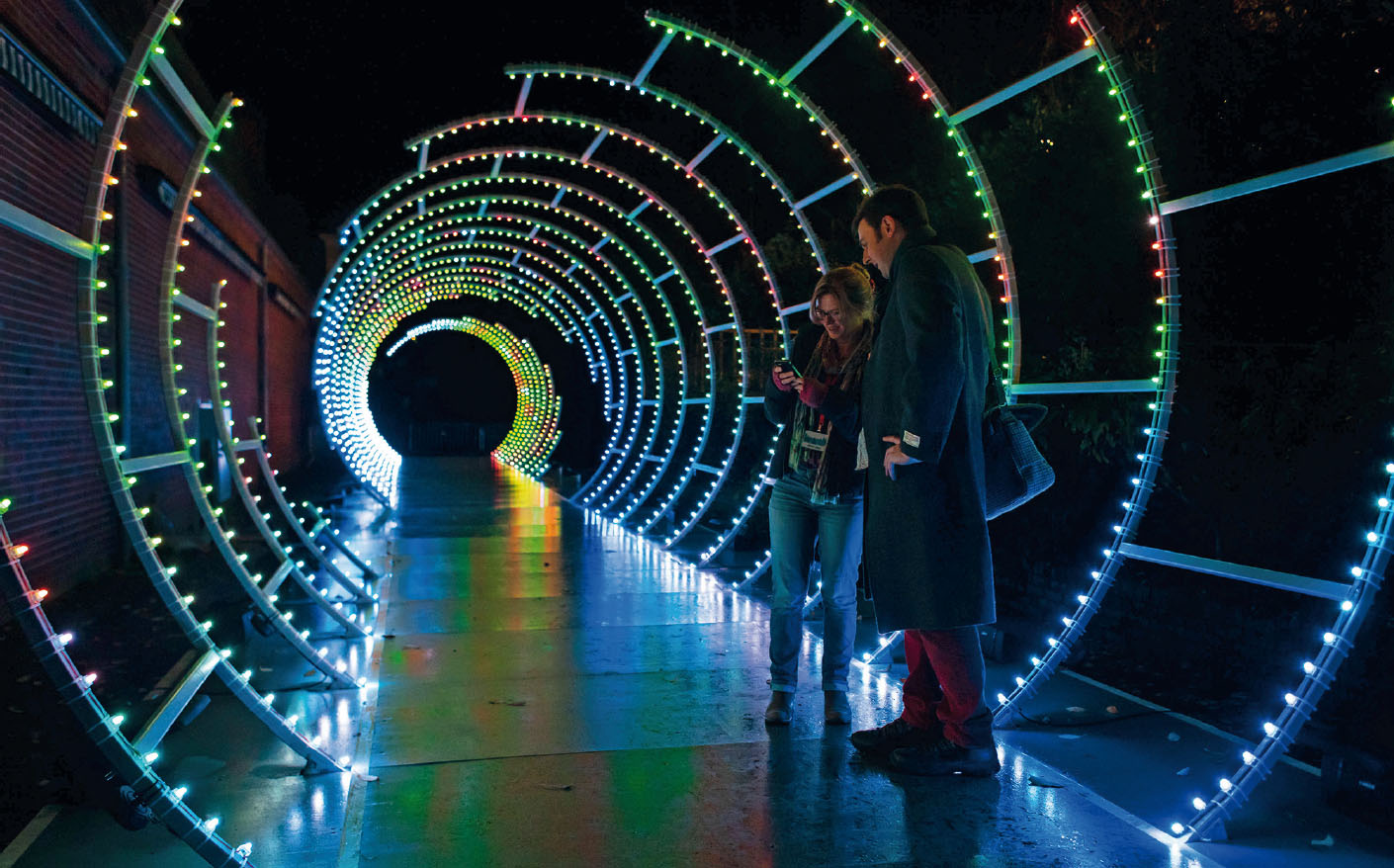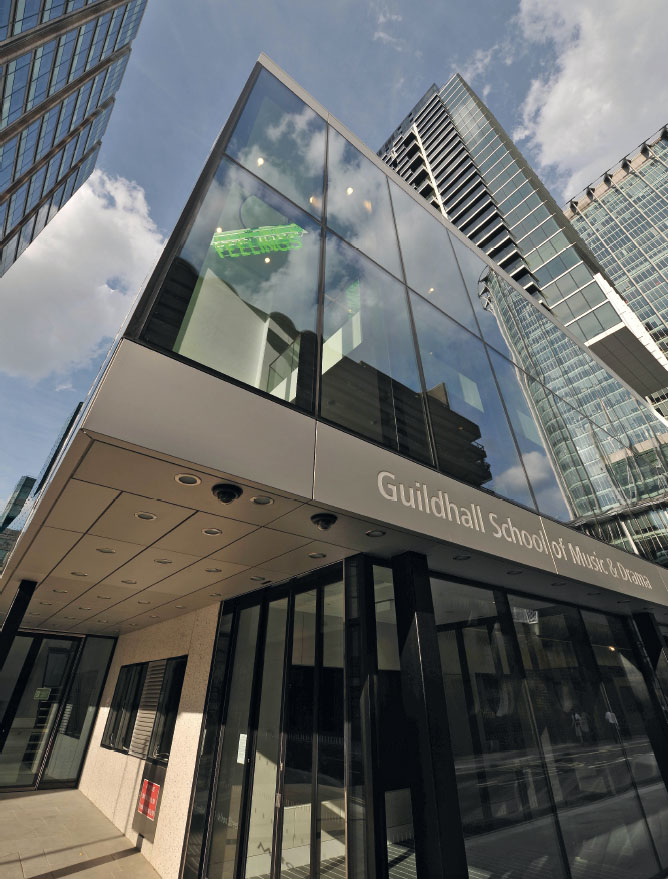
The sight of a fleet of keyboards plugged in around the classroom sent pulses racing. We'd make our approach, splitting off into groups of four or five, and take it turns to use the crude sound effects. Occasionally, these pieces of music would be recorded on a tape for posterity. This was the mid-90s, and for both students and teachers, music technology was an exotic subject. It wasn't yet an established GCSE course or even an aspect of the A Level curriculum. Fast-forward to today and things couldn't be more different, as music in many forms increasingly requires production techniques. ‘In the not so distant past, a film composer would write the score, send it to the director and see whether it was what they had in mind; now, the normal model is that the composer turns out the entire soundtrack – including any special effects – so even what might be seen as a conventional area of music involves a high level of understanding of electronics,’ explains Mike Roberts, head of electronic music and music technology at London's Guildhall School of Music & Drama.
Guildhall has offered courses on electronic music at undergraduate level for the past 20 years. Recognising the growth in this area of music, the institution will now offer a master's degree in electronic music, with the first cohort starting in 2020. ‘We found that students who wanted to take their studies to the next level were discovering that the master's courses they took – without naming names – were going over material they had done at graduate level. We wanted to offer something that would follow on from four years of specialised training with us, and appeal to students who have studied elsewhere,’ says Roberts. ‘Electronic music represents the largest growth area in the industry. We have graduates who are active in producing music for all kinds of media, such as video games, film, and music production, as well as freelance artists who focus more on experimental sound installations. This is an area that is also growing; we're increasingly seeing sound used in public spaces as a way of engaging audiences.’
An example of this could be seen at last year's Christmas Carnival held at Waddesdon Manor, where the grounds were taken over by vivid coloured lights and soundscapes created by students at the Guildhall School of Music & Drama. Immersive installation, the tunnel of light, invited wanderers to pause a while and reflect on the timbres created by Roberts and his tutees. Further in, an eight-minute animation projected on to the exterior of the 19th-century stables continued the carnival theme, featuring characters from a manuscript found in the collections at Waddesdon. It was one of the more original festival treats that I had the pleasure of attending. The department's latest work can be heard at the Museum of London's new exhibition Beasts of London, where digital installations describe the stories of the capital's animals through the ages.
Meeting a need
Institutions are beginning to equip aspiring musicians and composers with the tools they need to achieve sustainable careers. While a straight performance course at a conservatoire or university remains a popular choice for those wishing to pursue further education, it is no longer the de facto qualification. As well as electronic music, courses are tending to merge subjects together. There is now a BSc avaliable in Physics and Music Performance, for example, taught jointly by Imperial College London and the Royal College of Music (RCM). The degree allows students to study the core material from Imperial's three-year BSc Physics course, as well as the main performance elements of the RCM's BMus degree on one principal instrument.
These broader qualifications require a flexible skillset. ‘For one person, electronic music means Dubstep, for another, it's Boulez,’ Roberts points out. ‘We're style agnostic; we encourage diversity within the department. Because technology is changing all the time, it's difficult to set a pre-requisite for academic studies. We don't necessarily expect master's applicants to have an undergraduate qualification in electronic music as that would close the door to some talented people. For that reason, we have several different pathways and are not averse to taking on students who are self-taught. At undergraduate level, we have had students in the past who have been studying for an electronics degree and have transferred to electronic music – we're open to other subjects and industry experience.’
A new tradition

©FG Studios
Inside the immersive tunnel
Serious study of music is no longer about the three Bs (Bach, Beethoven and Brahms), and there are opportunities to take academic qualifications in areas including musical theatre, such as the MA at the Royal Academy of Music (RAM), as well as courses with a heavier focus on industry-related training, like the Music, Theatre & Entertainment Management BA(Hons) option at Falmouth University or RAM's CPD Diploma in Creative Music Leadership. But even more traditional degree courses are dabbling with out-of-the-ordinary topics. Pianist Christina McMaster has taught piano and multimedia at RAM; a module that explored unusual pianistic collaborations, melding keyboard music together with visuals, dance and animation, among others. ‘We even had a live water installation,’ says McMaster, ‘“Media”, in this case, is very wide ranging.’

© Hugo Glendinning
FEELINGS by Martin Creed at Guildhall
Introducing traditionally-trained pianists to such open-ended artwork has real value. ‘This sort of creativity can really get pianists thinking outside the box,’ observes McMaster. ‘Often the most seemingly conservative pianists would really run with it and come up with something extraordinary. It also gave them the vital opportunity to work with artists outside of their typical realm. We teamed up with the Central Saint Martins animation course, and I encouraged students to find their own collaborators. This process of working with other non-classical musicians can really boost confidence. Pianists can offer so much more than a recital in the standard 20th-century format.’
For McMaster, honing this ‘outside the box’ approach has helped her set up a new concert series called ‘Lie Down and Listen’, which combines meditation and restorative yoga (in silence), followed by a recital during which the audience members lay on the floor. ‘Some are there for the yoga, some for the music or both – but they are all deeply absorbed in the music, as are the performers,’ says McMaster. ‘With fewer audition opportunities in the traditional sense it's important for musicians to create their own audiences.’
As the music and creative arts industry continues to develop – spurred on by the concurrent growth of technology – the associated qualifications must continue to flex and change. Tomorrow's musicians should not be held back by the restrictions of today's teaching.
Beasts of London is on at the Museum of London until 5 January, while ‘Lie Down and Listen’ will return in 2020 – see liedownandlisten.com for more information.
More than a music degree: Six of the best alternative qualifications
- Sustainable Festival Management BA(Hons), Falmouth University
- Music Marketing & Communications BA (Hons), University for the Creative Arts
- Sonic Arts and Composition BMus (Hons), University of Huddersfield
- Popular Music Performance and Songwriting BA (Hons), Coventry University
- History of Art and History of Music MA (Hons), University of Edinburgh
- Electronic Music MA, Guildhall School of Music and Drama








